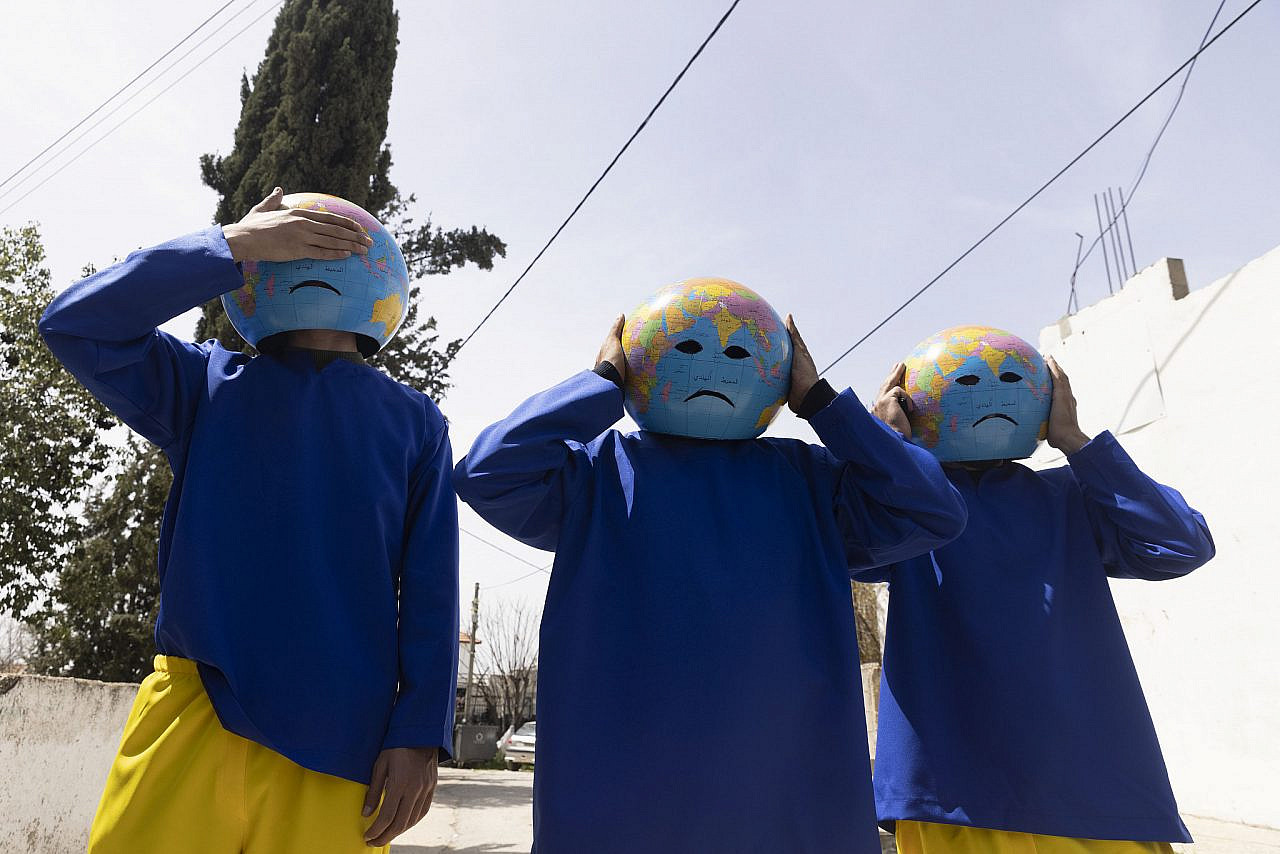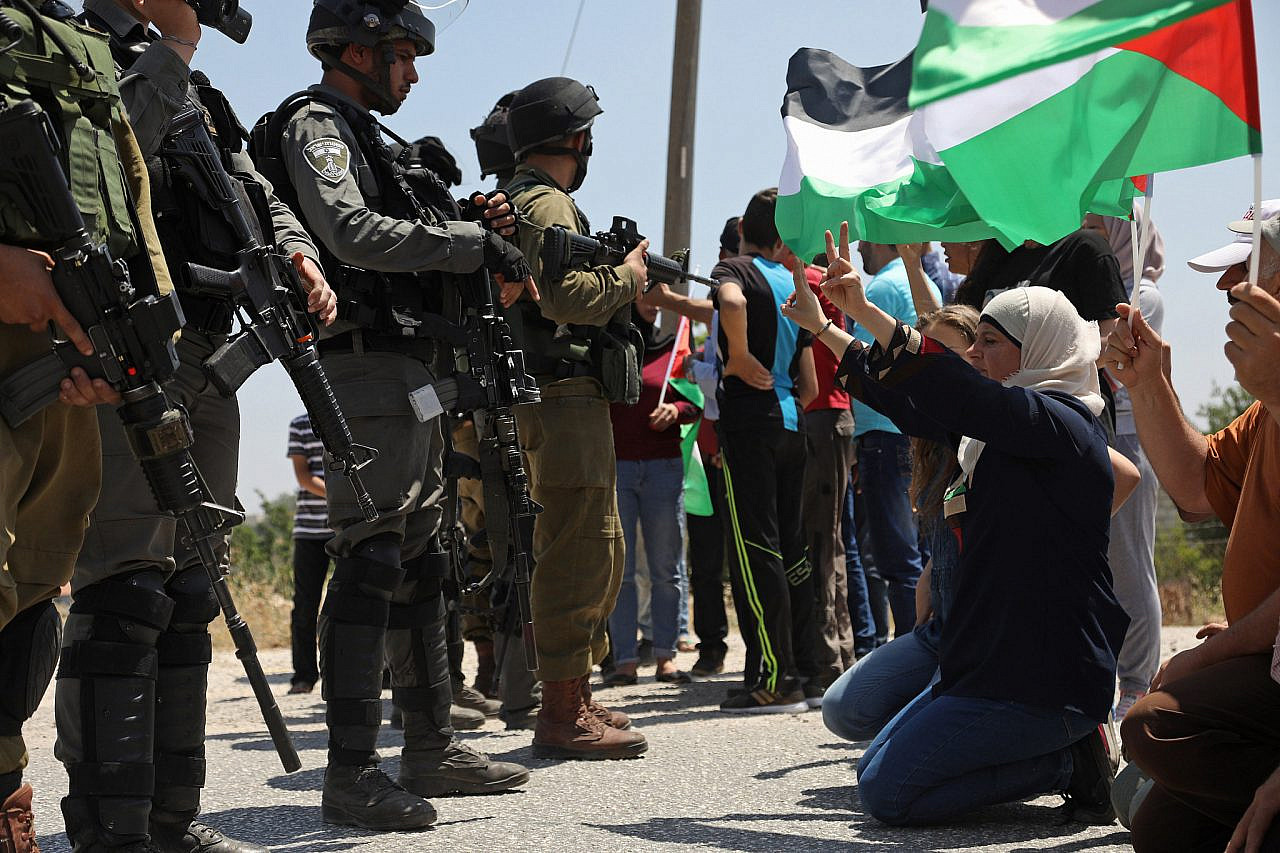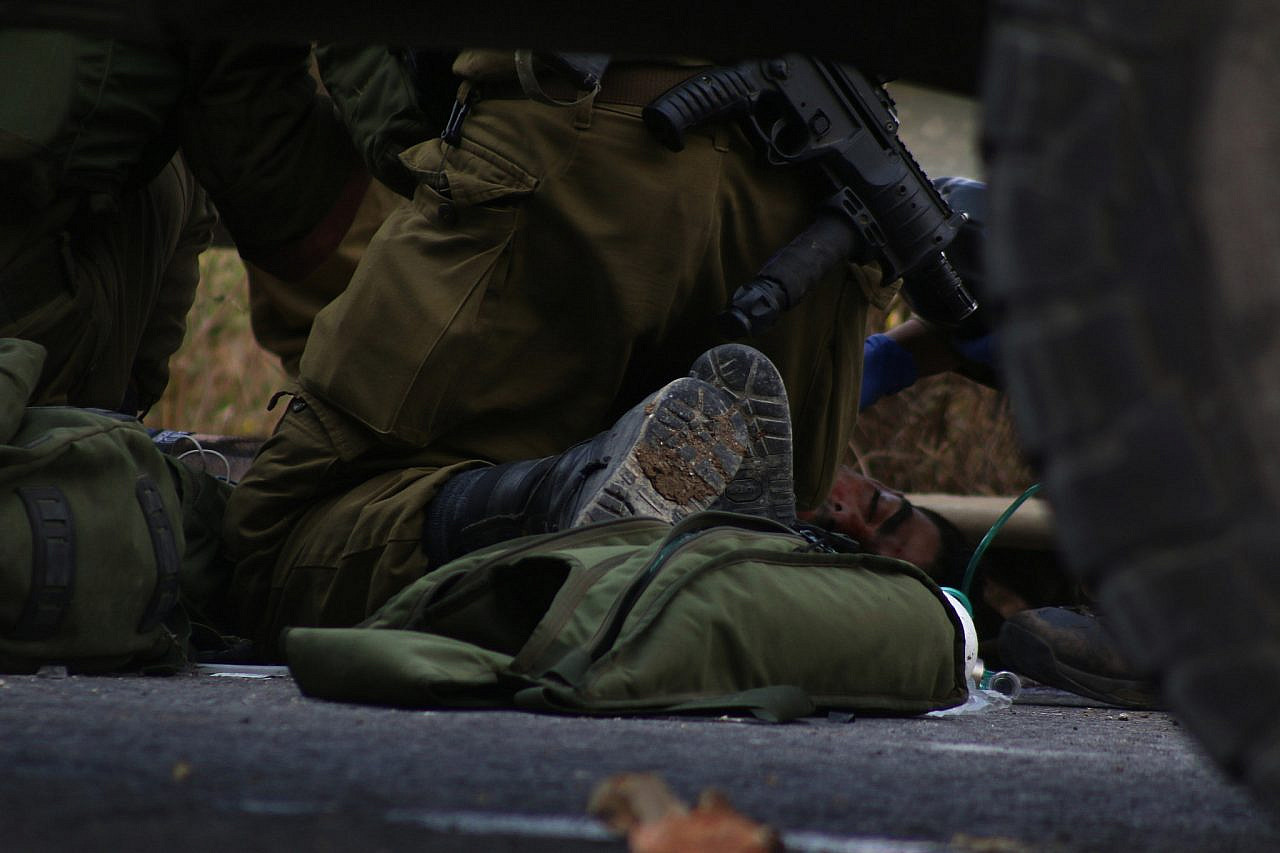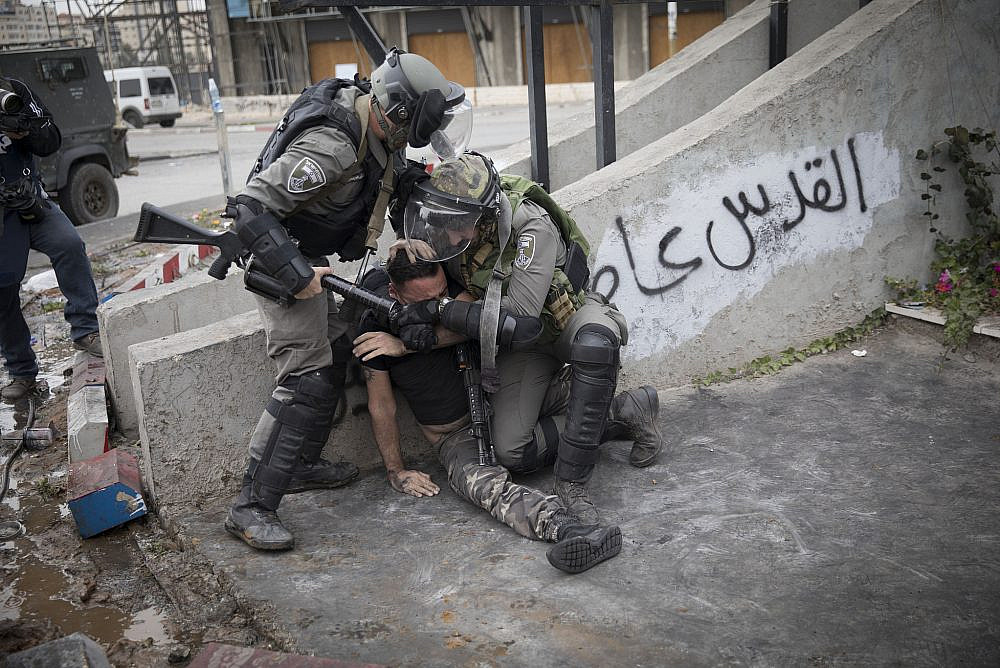Israeli politicians and jurists often describe the Israeli legal system as a “bulletproof vest” that protects Israel from foreign legal intervention. Rejecting the International Criminal Court’s mandate to investigate allegations of Israeli war crimes, they argue that under the Rome Statute, Israel’s willingness to investigate its own crimes — what is known as “complementarity” — allows it to remain outside the jurisdiction of international courts.
In order to maintain the illusion of a law enforcement system capable of investigating allegations of war crimes on its own, Israel needs a body of evidence that supposedly proves its adherence to the rule of law. Just as Israeli colonial expansionism necessitates the evacuation of short-lived settler outposts from time to time in order to legally justify the vast majority of Israeli settlements, so, too, does the military law enforcement system need to present examples of would-be investigations and prosecutions of soldiers who harm Palestinians. In this sense, the Israeli military’s chief prosecutor must process complaints, open investigations every now and then, and, on rare occasions, prosecute soldiers who harm Palestinians.
But this illusion is shattered by the data. The vast majority of complaints concerning soldiers harming Palestinians are dismissed, most investigations are closed, and, in the rare cases in which soldiers are prosecuted, they receive lenient sentences. In this vein, the existence of the Israeli military law enforcement system is nothing but a sham, the purpose of which is to trick the international community into continuing to enable the crimes committed under the auspices of Israel’s prolonged occupation that are an inevitable outcome of it.
The new government in Israel will seek to weaken this “bulletproof” legal system by promoting laws granting immunity to soldiers, among other measures. This type of change will further undermine the facade, however weak, that has allowed the state to claim immunity from the intervention of international courts. While Israeli jurists and officials express shock at the right-wing threat to the Israeli justice system over concerns about democracy and the rule of law, the fear of international courts intervening is a crucial factor in their hysteria.

Despite the right’s plans to weaken the judiciary, and despite the center-left’s vigorous defense of it, the current Israeli justice system hardly delivers justice as it is. Yesh Din, an organization that documents and publishes data on human rights abuses in the occupied Palestinian territories, performed a statistical analysis of the military law enforcement system over a period of five years (2017-2021) that proves that even without a law granting them official immunity, Israeli soldiers enjoy near total impunity when they harm Palestinians. Moreover, senior Israeli officers, officials, and decision-makers — those who reinforce and maintain Israeli apartheid and who are responsible for land theft, those who designed and defend the criminal policies of shelling residential neighborhoods, barely-enforced rules of engagement, and killing of protestors — are currently exempt from accountability for suspected war crimes under Israeli law.
Exposing the facade
The data provided by the military to Yesh Din exposes the facade: between 2017 and 2021, a total of 1,260 complaints about offenses committed by soldiers against Palestinians or their property were brought to the Israeli military, of which at least 409 concerned soldiers who killed Palestinians. This includes 237 civilians who were killed by soldiers during the Great March of Return protests in Gaza in 2018-19, 84 cases of killing and wounding of Palestinians during the military assault on Gaza in May 2021, and another 939 cases of killings, injuries, and property offenses committed by Israeli security forces in the occupied Palestinian territories. (These figures from the Israeli military do not come close to capturing the total number of cases of Palestinians who were killed or hurt by Israeli security forces: according to UN data, between the years 2017-2021, members of the Israeli security forces killed 614 Palestinian civilians and injured 76,340 in the occupied Palestinian territories.)
The data provided by the military demonstrate the disgraceful results of the handling of these complaints. Most were dismissed out of hand after only a “preliminary examination.” Out of the 1,260 complaints, only 248 investigations were opened, and only 11 of these investigations led to indictments being filed against soldiers — three of which in incidents where soldiers killed Palestinians. This means that out of hundreds of cases that raised criminal suspicion that Israeli soldiers killed Palestinian civilians, only three led to an indictment. The odds of a complaint about harm caused to Palestinians by a soldier culminating in an indictment is just 0.87 percent. This tiny percentage doesn’t even account for the many cases of violence committed by Israeli soldiers against Palestinians that resulted in complaints that were dismissed or investigations that were conducted with deliberate malintent.
In the rare cases in which soldiers who kill Palestinians are prosecuted, the charges are relatively minor, including “abuse of authority to the point of endangering life.” The military courts issue ridiculously lenient sentences, considering the severity of the acts. For instance, the soldier who shot and killed Othman Rami Hiles, a 14-year-old Palestinian boy, without permission from his commander and contrary to the rules of engagement, was sentenced to just 30 days of community service. This is what the life of a teenager is worth according to the military court, at least when the victim is Palestinian and the shooter is an Israeli soldier. For reference, this is the same punishment a group of soldiers received after they were prosecuted for puncturing the tires of Palestinian vehicles.

The soldier who killed Nawaf Ahmad al-Attar, meanwhile, was given a sentence of 45 days of community service, following a plea bargain that was backed by the Supreme Court. The soldier who opened fire on a Palestinian family whose car had been involved in a road accident, killing Ahmad Manasra as he approached to assist the family and seriously wounding Ala Raida, was sentenced to three months of community service.
Human shields for the architects of apartheid
The absurdly lenient sentences given to soldiers who kill Palestinian civilians demonstrates the military system’s complete disregard for the lives of Palestinians living under Israeli control. The deliberate failure of the military law enforcement system serves to support the deadly trigger-happy policies, which, alongside the lenient rules of engagement, have claimed the lives of Palestinians almost every day of the past year.
It is no coincidence that Israeli neo-conservatives are now seeking to outlaw the filming of soldiers. Out of the 11 cases that led to indictments between 2017 and 2021, five were filmed and published. Perhaps in these cases, the documentation left the courts with no other choice but to prosecute. Apart from the indictments concerning the killing of Palestinians, a few indictments filed during these years concern acts of violence that are inherent to a police force acting within a situation of prolonged military occupation — violence against and abuse of detainees.
Furthermore, the small minority of soldiers who are eventually prosecuted and sentenced are, of course, not the offspring of the Israeli elite, such as pilots or members of special forces units who are responsible for the “surgical” extrajudicial killings. Predictably, they are mostly soldiers from units that the army, along with Israeli society, is most comfortable prosecuting — units such as Netzah Yehuda, Golani, and Kfir, all of which are largely responsible for the daily and highly-visible violence against Palestinian society.

The prosecution of soldiers who allegedly deviate from the image that the army creates for itself allows the military to continue maintaining the facade of a law-abiding system and thus repel outside criticism. All of this is accomplished without policy reform and without holding those responsible for the prolonged and severe violation of the rights of Palestinians, as well as those who send these soldiers on their missions of repression and terrorization, accountable. In this sense, the soldiers who deviate only slightly from the institutionalized violence of Israeli domination and are prosecuted serve as human shields for Israeli officials and officers.
At the end of the day, and as the data show, the Israeli military law enforcement system is mainly used to whitewash crimes committed against Palestinians by Israeli soldiers as part of the state policies of apartheid and the prolonged occupation. It is nothing but a sham allowing Israel to claim protection for Israeli officers and officials from international tribunals.
Absurdly, the new government in Israel will seek to dismantle this facade. No more pretense of justice, but rather official policies of apartheid and Jewish supremacy. One can only hope that the transformation of Kahanism from the fringe of society to the halls of the Knesset will rip off the mask of legitimacy and justice that so far has helped ensure the preservation of Israeli domination. At the very least, it will be increasingly difficult for senior officials in the government and the military to continue sheltering under the facade of a functioning law enforcement system, potentially paving the way for international arrest warrants and prosecution of Israeli war criminals.

